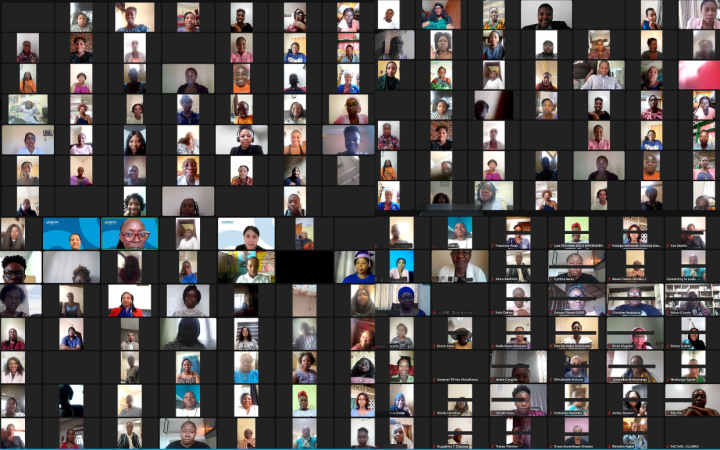Thank you for the opportunity to provide a statement to the Inquiry.
Protecting the most vulnerable members of our community from harm is a priority for Tasmania Police.
We are committed to the safety and wellbeing of our children and young people.
I commend the courage of the victim-survivors and their families who’ve shared their stories before the Commission – and the courage of every victim-survivor.
It has been confronting to hear the impact that Griffin’s offending has had on the lives of victim-survivors and their families.
And even more confronting to know there were opportunities where we could have put a stop to that offending.
Be assured that you have been heard. And we have learned from your experiences.
When I became aware that Tasmania Police held information reports about Griffin’s behaviour dating back to 2009, we immediately undertook to review those information holdings and responses.
The public release of the Outcomes Report in February 2021 outlined where our responses did not meet the standards I expect, or the community deserve.
On the same day, together with the Premier, I apologised to Griffin’s victims who were let down by deficiencies in our systems and investigative processes.
The impact of those failures are deeply felt and we committed to improving how we protect children.
I want to assure the community that we’ve taken significant steps to improve how we respond to information reports, how we share information, and how we educate, train, and support our members in responding to victim-survivors.
On release of the Outcomes Report, we announced the establishment of a Review Team to implement recommendations to improve child safety outcomes.
The Review Team included experienced Child Safety professionals, Detectives, Intelligence and Policy Analysts, who undertook a significant body of work. That included:
- A review of thousands of records held across Government agencies to assess potential risk to children.
- The development of Memorandum of Understandings (MOU) between Tasmania Police, Communities Tasmania, Justice and Education to ensure information is shared promptly across agencies.
- A policy shift from a prosecution-based approach to a more victim-safety and disruptive approach. This includes Working With Vulnerable People and other agencies to prevent harm.
- The development of mandatory training and investigation guidelines for police officers and child safety professionals.
The Review Team also undertook research into structural reform in the way Tasmania Police deals with child sexual abuse and Sexual Violence more broadly.
This work has led to the implementation of Multi-Disciplinary Centres – which will provide a wholistic, trauma-informed approach to responding to victim-survivors.
While we have continued to learn and improve over the past two decades, this is a significant shift in the victim-survivor response.
I want to thank victim-survivors for sharing their stories. I can’t imagine how difficult that was.
You have made an enormous and powerful contribution to learnings and continuous improvements in keeping the most vulnerable people in our community safe from harm.
What further steps have we taken to improve?
We strive to improve every day and we will continue to bring that mindset to our role in protecting the community.
Multi-Disciplinary Centres
The implementation of a wholistic, trauma-informed approach to responding to victim-survivors is a significant outcome of our learnings from the Griffin review.
MDCs will house specialist police investigators, Child Safety Services personnel, and sexual assault support personnel in the one location. This is a significant reform, based on research across other jurisdictions and internationally.
Funding of $15.1 million has been allocated in support of this transformational structural reform.
In the MDCs, victim-survivors of sexual and family violence will receive immediate and integrated wraparound support in a safe place from a range of services.
These new facilities will provide multi-disciplinary support teams and trauma informed facilities that prioritise the needs of victims.
These Centres will mean that clients can immediately access appropriate support, especially counselling, and, if they feel ready, they will also be able to report the violence to specialist police investigators on site.
Other key elements of this important structural form include:
- Expansion of the Safe Families Coordination Unit remit to include sexual offences, to create a multi-agency intel hub for sexual and family violence, where cross agency information sharing can be prioritised.
- Creation of new sexual offences investigative units within Tasmania Police (with intelligence analyst capability to liaise with the expanded Safe Families Coordination Unit), co-located within the multi-disciplinary centres to provide a specialist response to sexual violence (including in a family violence context).
- Embedding of staff from Children, Youth and Families (Department of Communities Tasmania) and victim support services into multi-disciplinary centres, to enable trauma informed support of victim-survivors.
Information sharing
Tasmania Police has sought to improve information sharing between agencies by:
- Creating the Tasmania Police Initial Investigation and Notification of Child Sexual Abuse Guidelines, significant changes to the Tasmania Police Manual to include very clear guidance and direction when dealing with CSA and
- Memoranda of Understanding designed to ensure prompt and efficient sharing of information including:
- Keeping Child Safe Handbook between the Department of Communities Tasmania (Child and Family Services) and Department fo Police, Fire and Emergency Management (Tasmania Police).
- The Registration to Work with Vulnerable People Information Sharing Protocol
- The MOU between Tasmania Police and the Department of education. The documents are designed to ensure prompt and efficient sharing of information.
- Mandatory training package for all sworn officers for responding to reports of child sexual abuse, including mandatory reporting obligations.
Intelligence system upgrades
Tasmania Police has significantly upgraded its information management system.
The new policing intelligence system “Atlas” (phase 1) was completed in 2019, and provided improved functionality, integration and access to criminal intelligence and management of information.
A single, integrated system means police can access information from a single source of truth, a ‘one stop shop’ for policing information which is reliable and accurate.
A fully integrated system will also mean that police will be able ‘join the dots’ far more quickly during enquiries or large-scale investigations, without the need to source and analyse information from across multiple systems.
It has delivered significant benefits, including to the recording, oversight and management of child safety matters. The project reviewed the current state and designed a process which either improved or established:
- tasking opportunities, supporting supervisor oversight and visibility
- alignment of the Child Safety Services information requirements with the data recorded by Tasmania Police with a level of granularity not previously captured
- structured and standardised reporting to Child Safety Services, and
- a system of prioritisation ensuring the identification and rapid escalation of priority child safety notifications.
Project Unify 2.0 will continue to transition major legacy operational information systems to Atlas creating a powerful and consolidated source system.
Joint Anti Child Exploitation Team (JACET)
In November 2019, the Australian Federal Police’s Joint Anti Child Exploitation Team was launched in Tasmania. It was a significant boost to resources to help identify, target and prosecute predators.
It provides a greater coordinated investigative response to prevent the sexual exploitation of children.
It accelerates the way information is received from domestic and international agencies and brings agencies together for joint investigations.
Referrals, information exchanges and intelligence are coordinated between Tasmania Police and the AFP.
Investigators from both agencies conduct joint operations utilising State and Commonwealth legislation and deploy together when operationally required.
The JACET undertakes investigations resulting from referrals from the United States based National Centre for Missing and Exploited Children (NCMEC), direct reports made to police and online engagements through targeted activity.
The Australian Centre to Counter Child Exploitation (ACCCE) Child Protection Triage Unit is managed by the AFP and serves to evaluate and triage reports of child exploitation and refer matters or information to the relevant agency for action in a timely and effective manner.
This supports disruption activities and prevents future offending.
The Tasmanian JACET has undertaken 181 investigations resulting in 97 prosecutions. There have been a number of other matters which have resulted in disruption or referrals.
Where can victim-survivors get help?
We are an accountable, open and learning organisation, and we are committed to doing better.
Victim-survivors can have confidence that we have reviewed our own responses, we have made improvements in how we record and share information, and we are dedicated to providing trauma-informed responses when victim-survivors come forward.
I want to reassure victim-survivors that we will investigate child sex offences committed on them, or on another.
Please come forward and report it. Your matter will be pursued.
If you or someone you know is experiencing family or sexual violence and need urgent assistance phone police on Triple Zero (000).
To report a non-urgent incident of family or sexual violence, call the Tasmania Police Assistance Line on 131 444 or attend your local police station to make a report. People with hearing impairments can call TTY 106.
You may also call the Family Violence Counselling Support Service on 1800 608 122 (if you do not wish to report the matter to police in the first instance) for advice, support and counselling.
If you require further support and assistance visit https://www.safefromviolence.tas.gov.au/
Darren Hine
Commissioner of Police








